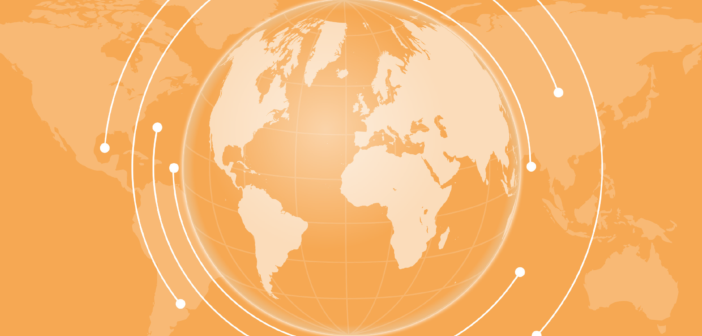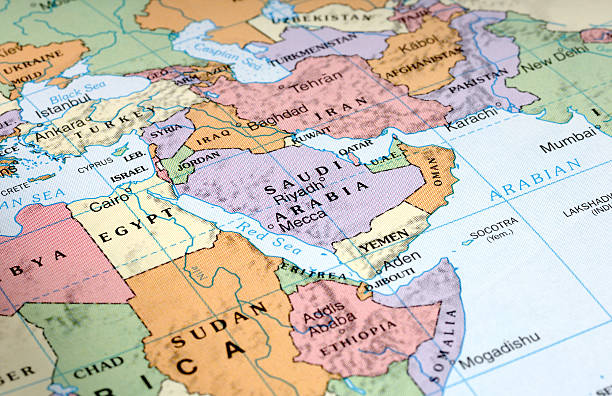
Click here for the full report
War-making vs. Peacemaking
Ali Tuygan
9/11 Led to an outburst of international sympathy and support for the US. President George W. Bush vowed vengeance and ordered the invasion of Afghanistan, where al-Qaeda’s leadership was based. Russian President Putin was the first foreign leader to call US President Bush and in a statement of support he said: “In the name of Russia, I want to say to the American people – we are with you.” He coordinated with central Asian countries to allow US forces, for the first time, to use military bases of the former Soviet Union.
Soon after, unfortunately, came the US-led invasion of Iraq under false premises, followed later by the Arab spring interventions.
On 17 March 2011, the Security Council adopted Resolution 1973 which authorized member states to take all necessary measures to protect civilians while excluding a foreign occupation force of any form on any part of Libyan territory. Brazil, China, Germany, India, and Russia abstained. A day after the adoption of Resolution 1973, a conference in Paris, held under French, British, and US leadership, decided to start air operations against Qaddafi’s forces to protect the civilians. Within hours airstrikes began. It soon became clear that the purpose was regime change.
The force with which these operations were conducted caused discomfort in Arab capitals which probably expected that Resolution 1973 would be vetoed by Russia and China whereas they abstained. Beijing and Moscow also expressed concern over the scale of airstrikes. Thus, when a similar resolution on Syria came before the Security Council, they used their veto power.
Throughout these Middle East interventions, Washington and its Western allies pretended to lead the “international community”, or at a minimum, a broad international coalition. In the case of Syria, they called it “Friends of the Syrian People”. Today, nobody even remembers the group.
In brief, by its Middle East interventions, Washington squandered the opportunity created by the 9/11 tragedy to reinforce its claim to global leadership. Every time US officials criticize China or Russia the latter refers to interventions in Iraq and Libya.
Today, China, Russia, and the West differ on the definition of the so-called “rules-based international order”.
The phrase, according to the West, is the body of rules, norms, and institutions that govern relations. Among those are treaties, international law, formal structures, institutions, and values that have developed around and through these such as support and promotion of democracy, equality, and human rights.
The problem is that the US and its Western allies on the one hand, and China and Russia on the other have different perceptions of the international order. The latter put the emphasis on international law and the UN Charter. They disagree with what they call Western attempts to create an arbitrarily expanded set of rules. China’s Foreign Minister Wang Yi calls the UN “the banner of multilateralism”. He puts the emphasis on a “law-based international order” and does not even use the phrase “rules-based international order”. Foreign Minister Lavrov has always taken care to emphasize that Russia’s presence in Syria is based on the invitation of the Syrian government.
Russia’s invasion of Ukraine was a violation of international rules of good conduct under both definitions. And once again, a tragedy has offered Washington an opportunity to reassert its claim to global leadership.
This is why senior officials of the Biden administration are traveling to almost every corner of the world, engaging in endless telephone calls with their foreign counterparts to gather support for Ukraine and Western sanctions to secure an as wide as possible rejection of the Russian invasion.
This is also why I concluded my last post by saying that when President Biden, in his first major foreign policy statement, declared his determination to reengage with Europe and to earn back America’s position of trusted leadership, could not have imagined that President Putin would give him a great opportunity to do just that, to put the chaotic withdrawal from Afghanistan, the tremors of AUKUS behind, and to raise some hope, albeit dim, of restoring unity at home. But the Russian invasion does not whitewash Washington’s long record of interventions.
At present, a lot of criticism is directed at Beijing for its “support” of Moscow. But during recent years Washington has increasingly targeted China as a “strategic competitor”. On June 14, 2021, at the Brussels summit, China was mentioned for the first time in a NATO communique. Could China’s attitude toward the invasion be somewhat different had this not been the case? Perhaps.
In a recent Foreign Affairs article titled, “China’s Ukraine Conundrum, Why the War Necessitates a Balancing Act” Yan Xuetong said:
“Regardless of what China says or does in response to Russian President Vladimir Putin’s decision to wage war in Ukraine, Washington is unlikely to soften its strategy of containment toward Beijing. And as China’s largest and most militarily capable neighbor, Russia is not a power that Beijing wishes to antagonize. Chinese policymakers have therefore sought to avoid unnecessarily provoking either rival power—abstaining from votes to condemn Russia in the UN General Assembly and carefully selecting its official statements about the war.
“This balancing strategy is not without costs. Refusing to condemn Russia has strained China’s relations with some of its neighbors and distanced Beijing from many developing nations that have lined up against Russia’s war in Ukraine. It has also incurred economic costs stemming from Russia’s war that could continue long into the future…” [i]
India is also criticized for not condemning the invasion and not joining Russia sanctions. But a country’s energy supply chain cannot be changed or replaced at once. Governments need time to assess the impact of adverse international developments on their economy with a long-term view before they act.
Last week, in an interview with Time magazine, former President of Brazil Luiz Inácio Lula da Silva said that it is irresponsible for Western leaders to celebrate Zelensky rather than focusing on closed-door negotiations.[ii]
And this is what Thomas L. Friedman said in his must-read New York Times article of May 6:
“Alas, we have to be alive to the fact that it’s not only the Russians who would like to involve us more deeply. Have no illusions, President Volodymyr Zelensky of Ukraine has been trying to do the same thing from the start — to make Ukraine an immediate member of NATO or get Washington to forge a bilateral security pact with Kyiv. I am in awe of Zelensky’s heroism and leadership. If I were him, I’d be trying to get the U.S. as enmeshed on my side as he is.
“But I’m an American citizen, and I want us to be careful. Ukraine was, and still is, a country marbled with corruption. That doesn’t mean we should not be helping it. I am glad we are. I insist we do. But my sense is that the Biden team is walking much more of a tightrope with Zelensky than it would appear to the eye — wanting to do everything possible to make sure he wins this war but doing so in a way that still keeps some distance between us and Ukraine’s leadership. That’s so Kyiv is not calling the shots and so we’ll not be embarrassed by messy Ukrainian politics in the war’s aftermath.” [iii]
To conclude, Russia’s invasion of Ukraine is an act of aggression, a huge miscalculation by President Putin. I cannot but admire the courage, the calm, and the poise of the people of Ukraine in the face of a major military assault. Nonetheless, while supporting Kyiv, Washington and its Western allies must avoid creating the impression that they are more interested in subduing Moscow than bringing an end to the suffering of the people of Ukraine. They must advise President Zelensky to come back down to earth. Because as the impact of a protracted war and Russia sanctions on global energy and food supplies becomes more deeply felt, countries not directly involved in the conflict would start voicing their resentment. Allegations of Western double standards would re-emerge. Should the US/NATO and the EU were to focus only on arms shipments to Ukraine, they would be squandering the gift President Putin has offered them. Because global leadership, beyond military power, depends on peacemaking.
President Putin’s Victory Day speech contained no surprises.
In the meantime, everything else has taken a backseat to the war in Ukraine. The talks to restore the JCPOA have not reached conclusion. North Korea is continuing with its missile tests. Afghanistan and Yemen remain confronted with humanitarian disasters. Peace is not in sight in either Syria or Libya. Poor countries are having a tough time fighting the pandemic. Afghan women will now have to wear the face veil for the first time in decades under a decree passed by the country’s ruling Taliban. And the negative impact of climate change is becoming more visible with each passing day.
——————————————————————————————–
[i] https://www.foreignaffairs.com/articles/china/2022-05-02/chinas-ukraine-conundrum
[ii] https://time.com/6172611/brazil-president-lula-interview/
[iii] https://www.nytimes.com/2022/05/06/opinion/biden-ukraine-leaks.html?smid=em-share









